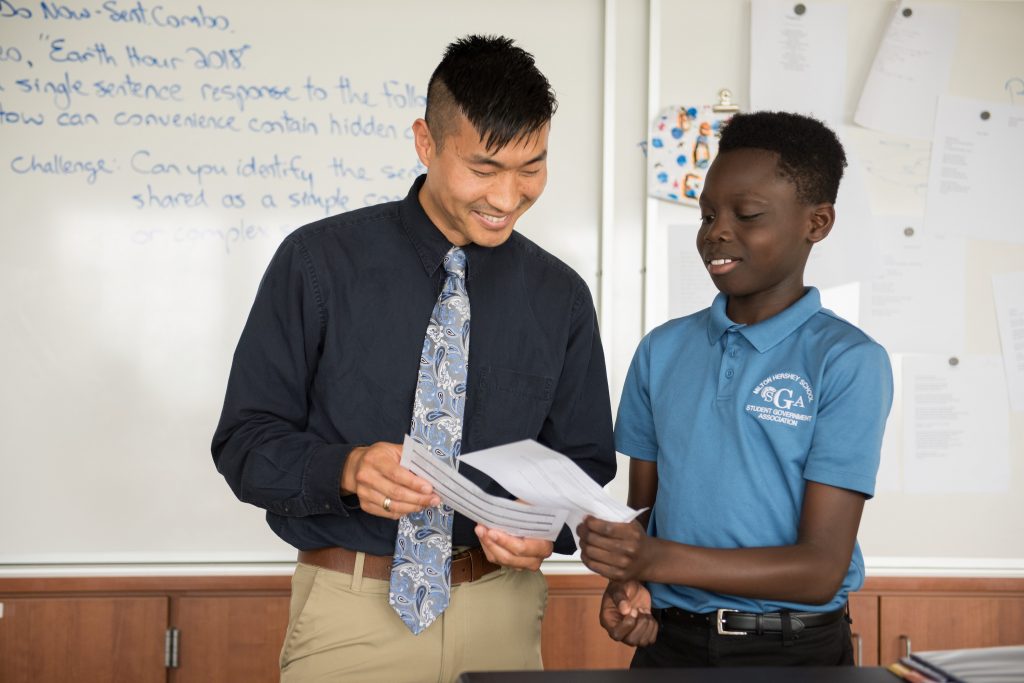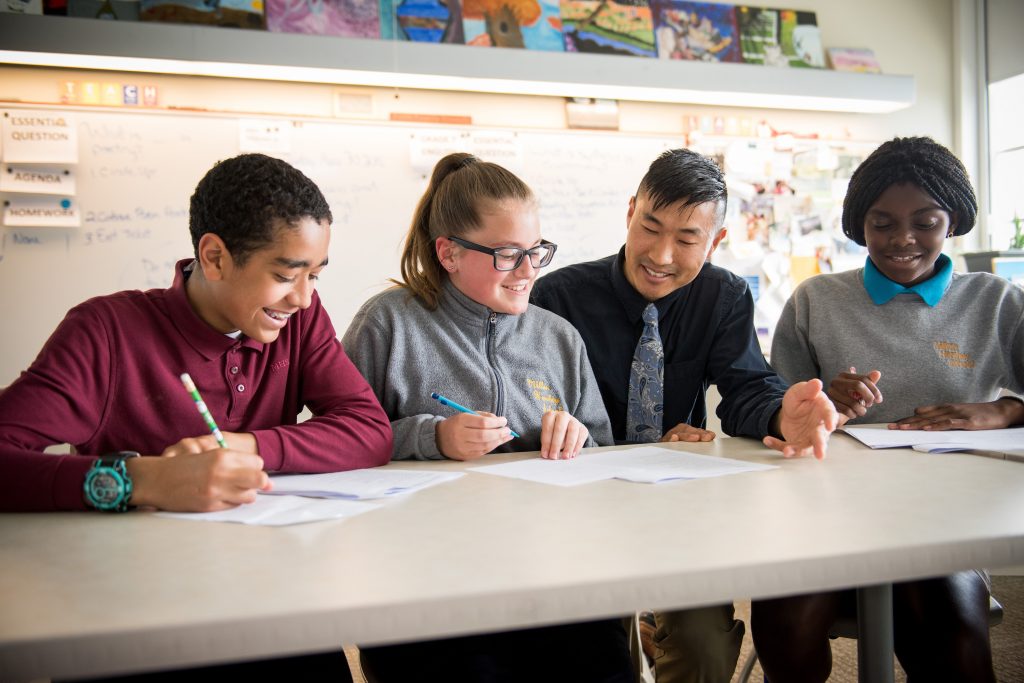What Can I Do For You?
How Hospitality Helps Our Students
Imagine arriving at your hotel after a long day of travel. Perhaps this is a business or work-related trip and you are traveling alone. Perhaps this is a personal or family trip and you have your kids in tow. Perhaps the travel took you to busy airports or on congested highways. No matter the reason for your travel or the strains along the route, if you are like most people you would appreciate a warm smile, welcoming words, and the comfort of knowing you have arrived at a place to rest along the way.
In my young life (is nearing 40 still young?!?!), I have been blessed with the ability and support to travel. From the professional to the personal, travel has been a part of my life since my youth. The travel I did as a child with my family was to see other family. My mom was from Baltimore, while my dad called Middletown his home. Apparently, mom lost the bet after they got married and they started their home here in south central Pennsylvania. I remember Sunday afternoons as a child, we’d come home from church, mom would cook a hot breakfast, and then my parents would decide—almost on a whim, it seemed—to take us all on a trip down Interstate 83 to Baltimore to see mom’s side of the family. The 90 minutes in the car felt long at times, at others, less so; but through the years, and all our trips down, I remember the wonderful feeling of being welcomed by granny at the door of a small rowhome.
Granny had shown us hospitality.
Fast-forward to the present day. Granny has since passed on, I have my own family with my wife and six (no typo!) kiddos, and we still find reasons to travel. One of the many good things that lives on from my memory of my granny is the hospitality I felt as a child visiting her.
Hospitality is one of those values that transcends cultures and countries, ages and settings. It is the visible behavior we witness when we are made to feel welcome.
From the body language to the facial expressions, the words that are said and the words that are not, hospitality allows the host to be magnanimous and the guest to likewise reciprocate with respect and gratitude. It is, in some regards, an ancient theater we enact whenever we encounter the known and the unknown people in our lives. In today’s society and times, it may seem to be a lost art and value among some, but it is all the more recognized when it emerges.

But what does hospitality have to do with teaching? After all, isn’t the hospitality industry one thing and teaching another?
While it is true that teaching is very distinct from the customer-service-oriented hospitality industry, teaching is a better business when those of us in the classrooms and schools ourselves learn from the people whose business it is to make others feel welcome.
Like my granny, good teachers and school staff likely show hospitality quite naturally; it’s who they are to be hospitable. But I wonder: Do even good people lose perspective about the enduring value of hospitality in the day-to-day, week-to-week business of teaching?
In the arc of my teaching, I’ve noticed that I have made concerted efforts to shift toward a greater spirit of hospitality in my classroom. Doing so does not mean I become a doormat to demands or an enabler of laxity when it comes to the real work of learning. Rather, doing so puts me in a position of vulnerability on some levels, because I am accepting the role of helper of an experience over the role of controller of a situation. Doing so reminds me that my students are truly travelers along a great and arduous journey toward adulthood, fraught with the strains of growing up, ready to hear from a friendly voice, and most importantly, willing to accept help along the way.
Make no mistake—hospitality takes effort and commitment to a value beyond one’s self. After all, it is the recognition of the inherent value in the other that we honor when we show hospitality.
When I model hospitality, I show my students what genuineness, service, and compassion look like. When I show hospitality, I am more likely to see my students incorporate that into their own encounters with one another, as well. These visible and audible reminders of civility, warmth, and genuine care for others remain some of the best ways we can reach out to our young people.

With my own kids at home, I often prompt them to ask their mom my favorite question: “What can I do for you?” It’s a risky question that many of us in any walk of life might be reluctant to repeat because it suggests we will actually listen and do our best to serve others for a time. But it is a question that embodies the hospitality our classrooms most need right now. When is the last time you heard a teacher say that to a student?
These six simple words aren’t magic, but they are meaningful when delivered with real intent to follow through and help others. After all, isn’t that our real business as teachers?

